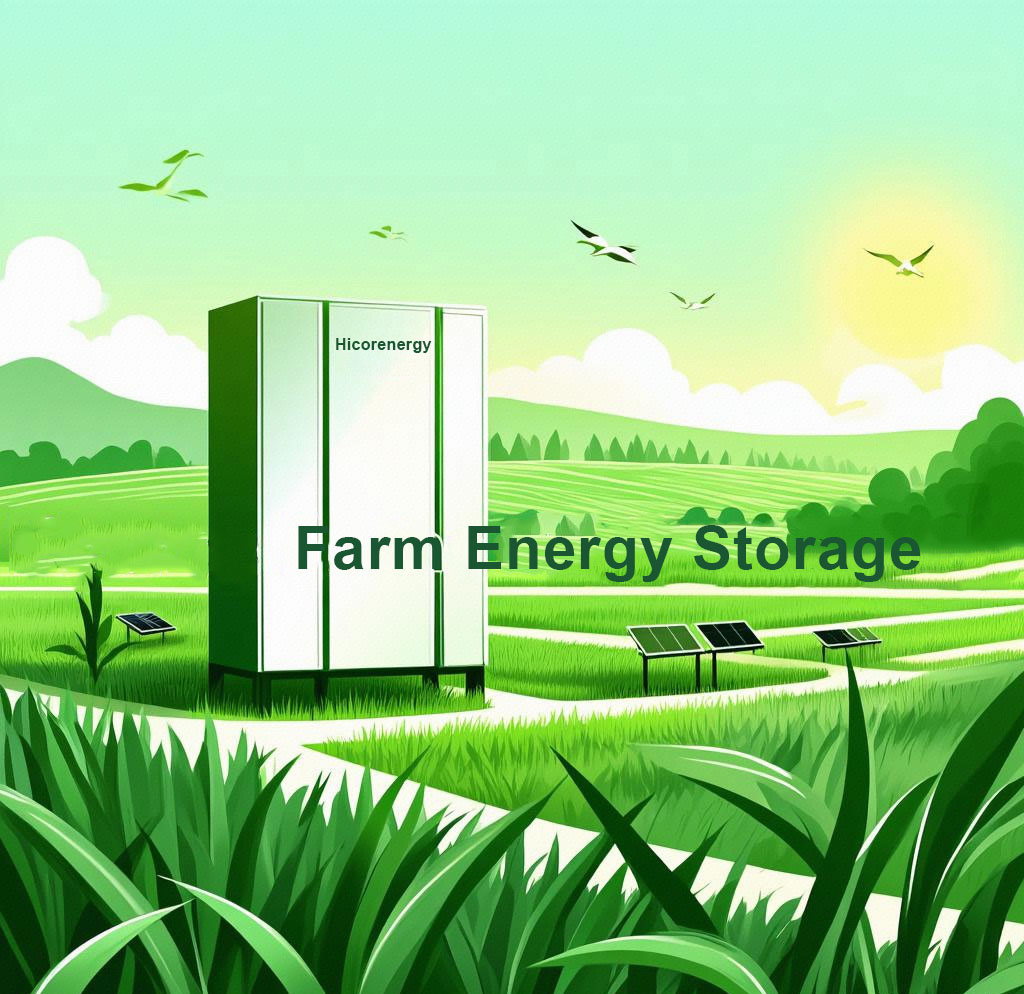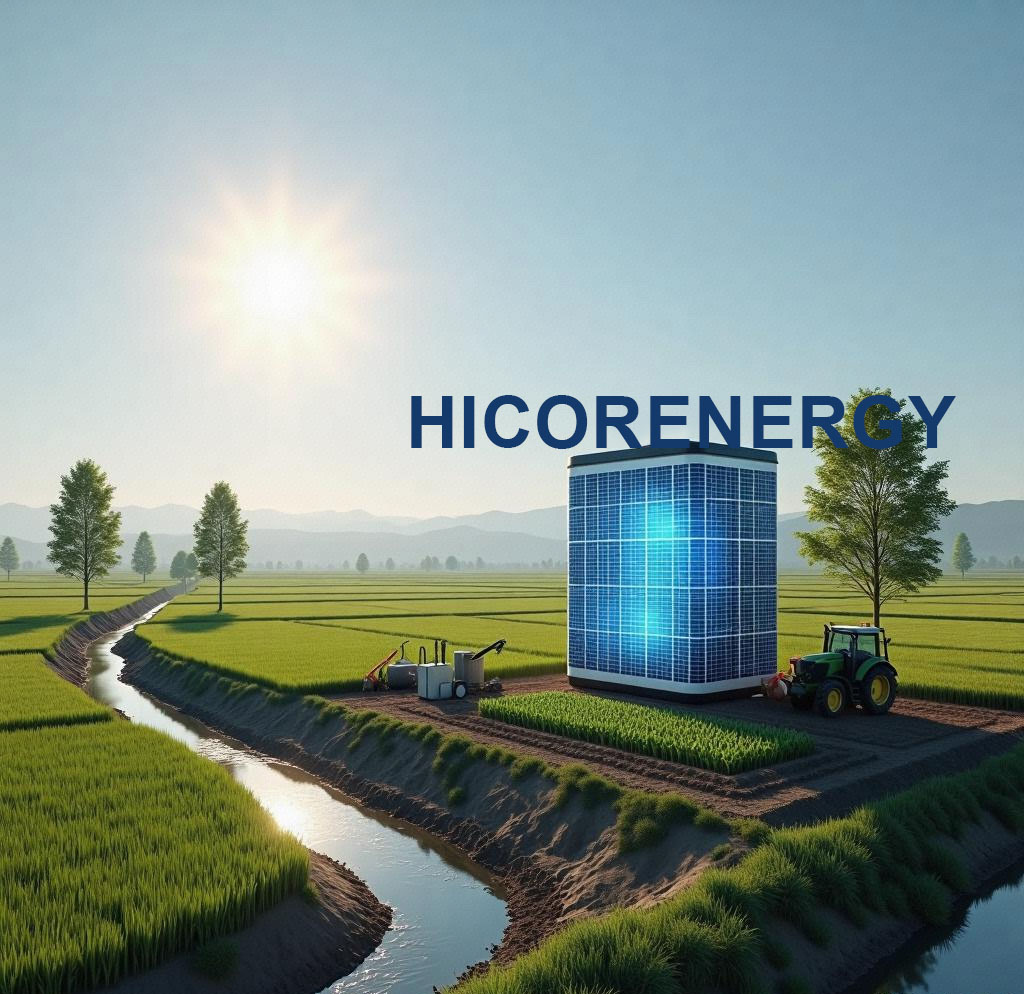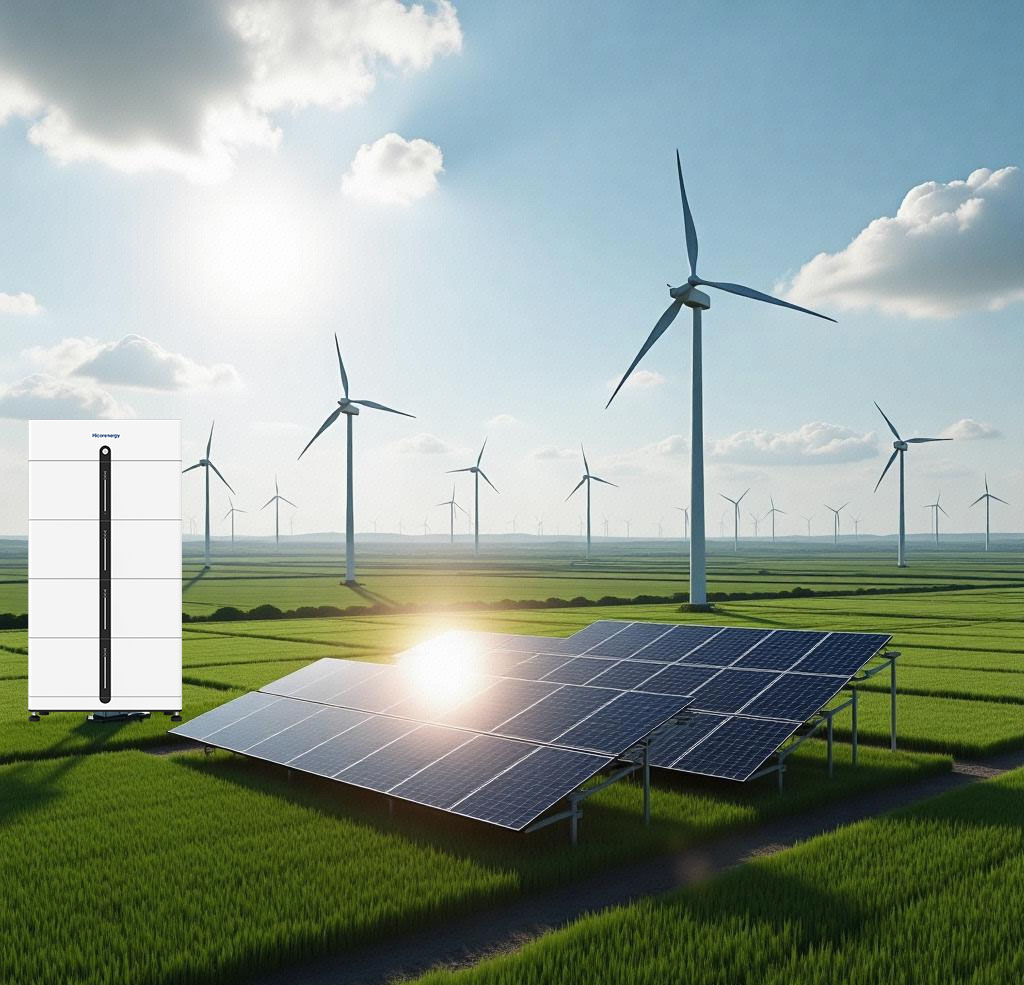Table of Contents
The Importance of Energy Storage Systems for Farms
Farm energy storage systems play a crucial role in ensuring a stable and cost-effective power supply for agricultural operations. These systems help reduce reliance on the grid, optimize energy usage, and provide backup power during outages, ultimately improving farm productivity and profitability. By storing excess energy generated from renewable sources, farmers can manage their power needs efficiently, leading to long-term cost savings and sustainability.

What Is a Battery Energy Storage System?
A battery energy storage system (BESS) is a technology that stores electricity generated from renewable sources such as solar and wind power. These systems consist of high-capacity batteries, an inverter, and a battery management system (BMS) to regulate performance and safety. The stored energy can be used when needed, providing a reliable and efficient power source for farms.
Hicorenergy specializes in lithium-ion battery energy storage solutions designed for residential, commercial, and industrial applications. Their storage systems, such as the I-BOX 48100R and C5°, offer high energy efficiency, long cycle life, and compatibility with various power systems, making them ideal for farm energy needs. These batteries ensure continuous energy supply, helping farms maintain operations even during peak demand or grid failures. Additionally, these solutions integrate smart monitoring and remote control features, allowing farmers to track and optimize energy usage in real time.
Advantages of Energy Storage Systems in Farms
Energy storage systems enhance farm efficiency by lowering electricity costs, reducing dependence on fossil fuels, and enabling better management of renewable energy. Additionally, they provide emergency backup power, ensuring operations continue without disruption during outages. By incorporating battery storage, farms can improve operational resilience, reduce carbon footprints, and secure long-term financial stability.
7 Problems That Energy Storage Overcomes on Farms
Grid Instability and Power Outages
Farms located in remote areas often face unreliable grid connections. Battery energy storage ensures a steady supply of power, preventing operational interruptions and allowing essential farm functions, such as irrigation and refrigeration, to continue seamlessly.
High Energy Costs
With peak electricity pricing, energy storage allows farms to store energy during off-peak hours and use it when costs are higher, significantly reducing expenses. This approach enables farmers to achieve substantial long-term savings on their electricity bills while enhancing financial predictability.
Renewable Energy Management
Solar and wind power production fluctuates based on weather conditions. A battery energy storage system balances supply and demand, storing excess energy for later use. This ensures that renewable energy sources remain reliable, maximizing their efficiency and return on investment.
Equipment Downtime and Losses
Power disruptions can lead to equipment failure and spoilage of perishable produce. Energy storage ensures uninterrupted operation of critical farm machinery, processing equipment, and refrigeration units, reducing waste and improving productivity.
Limited Access to Traditional Power Sources
Many farms are far from main power grids. A reliable energy storage system reduces dependence on expensive and polluting diesel generators. By integrating battery storage, farmers can achieve energy independence and reduce reliance on unstable grid connections.
Environmental Impact
Switching to battery energy storage reduces carbon emissions by minimizing reliance on fossil fuels, making farm operations more sustainable. This shift supports global sustainability efforts while aligning with regulatory requirements and incentives for green energy adoption.
Inconsistent Irrigation and Water Pumping
Pumps require stable power to operate efficiently. With stored energy, farms can ensure consistent irrigation and water management even during power failures, improving crop yields and water conservation efforts.
Farm Energy Storage Technologies
Farms can benefit from various energy storage technologies:
Lithium-Ion Batteries: The most efficient and long-lasting option, offering high energy density and quick charging.
Lead-Acid Batteries: A lower-cost alternative but with shorter lifespan and higher maintenance.
Flow Batteries: Suitable for long-duration storage, ideal for farms needing large energy reserves.
Hybrid Systems: Combining multiple storage technologies for optimized performance and cost-effectiveness.
https://hicor-energy.com/shv48100/Hicorenergy offers cutting-edge lithium-ion solutions, such as the Si LV1 and SHV48100, ensuring high performance and durability. These technologies allow farmers to select the most suitable solution based on their specific energy needs and financial constraints.

Types of Farms Suitable for Energy Storage Systems
Dairy Farms: Require continuous power for milking machines, refrigeration, and lighting. Reliable energy storage prevents losses caused by power disruptions and enhances operational efficiency.
Crop Farms: Use energy storage for irrigation, processing equipment, and storage facilities. Battery storage ensures stable power for water pumps and harvesting machinery.
Livestock Farms: Depend on stable electricity for feeding systems, ventilation, and heating. Energy storage protects against losses caused by power outages, ensuring livestock well-being.
Greenhouses: Need energy storage for lighting, temperature control, and automated systems. Stored energy helps maintain optimal growing conditions year-round.
Battery Energy Storage Range for Agriculture
Hicorenergy offers a range of solutions tailored for agricultural applications:
I-BOX 48100R: Compact and efficient for smaller farm setups. Provides excellent cycle life and performance.
C5°: High-charge efficiency and remote monitoring capabilities, making energy management more convenient.
Si LV1: Scalable and easy-to-install for medium to large farm operations, ensuring flexibility and expansion capability.
SHV48100: Suitable for distributed energy storage in larger agricultural facilities, offering robust and efficient energy backup.
Usage Case of Battery Energy Storage System in a Farm
A dairy farm in Kenya integrated Hicorenergy’s Si LV1 system, significantly reducing its reliance on diesel generators. By storing excess solar power, the farm maintained stable operations and cut energy costs by 40%. This energy independence allowed the farm to optimize its resources and invest in further technological advancements.
Similarly, a poultry farm in Nigeria utilized the I-BOX 48100R, ensuring continuous power for ventilation systems and improving livestock health. By incorporating battery storage, the farm experienced fewer losses due to power failures and enhanced overall productivity.
A greenhouse operation in Thailand adopted the SHV48100 battery system to manage lighting and climate control. With efficient energy storage, the farm increased crop yields while reducing operational costs. These cases highlight the critical role of battery storage in transforming agricultural businesses worldwide.

Summary of Hicorenergy Products
Hicorenergy provides high-performance lithium-ion battery storage solutions tailored for farm applications. Their reliable and scalable products help reduce costs, ensure energy independence, and support sustainable agriculture, making them the ideal choice for modern farming operations. With a diverse product range, advanced technology, and superior performance, Hicorenergy enables farmers to optimize their energy usage while contributing to a greener and more efficient agricultural sector.
-scaled.png)
